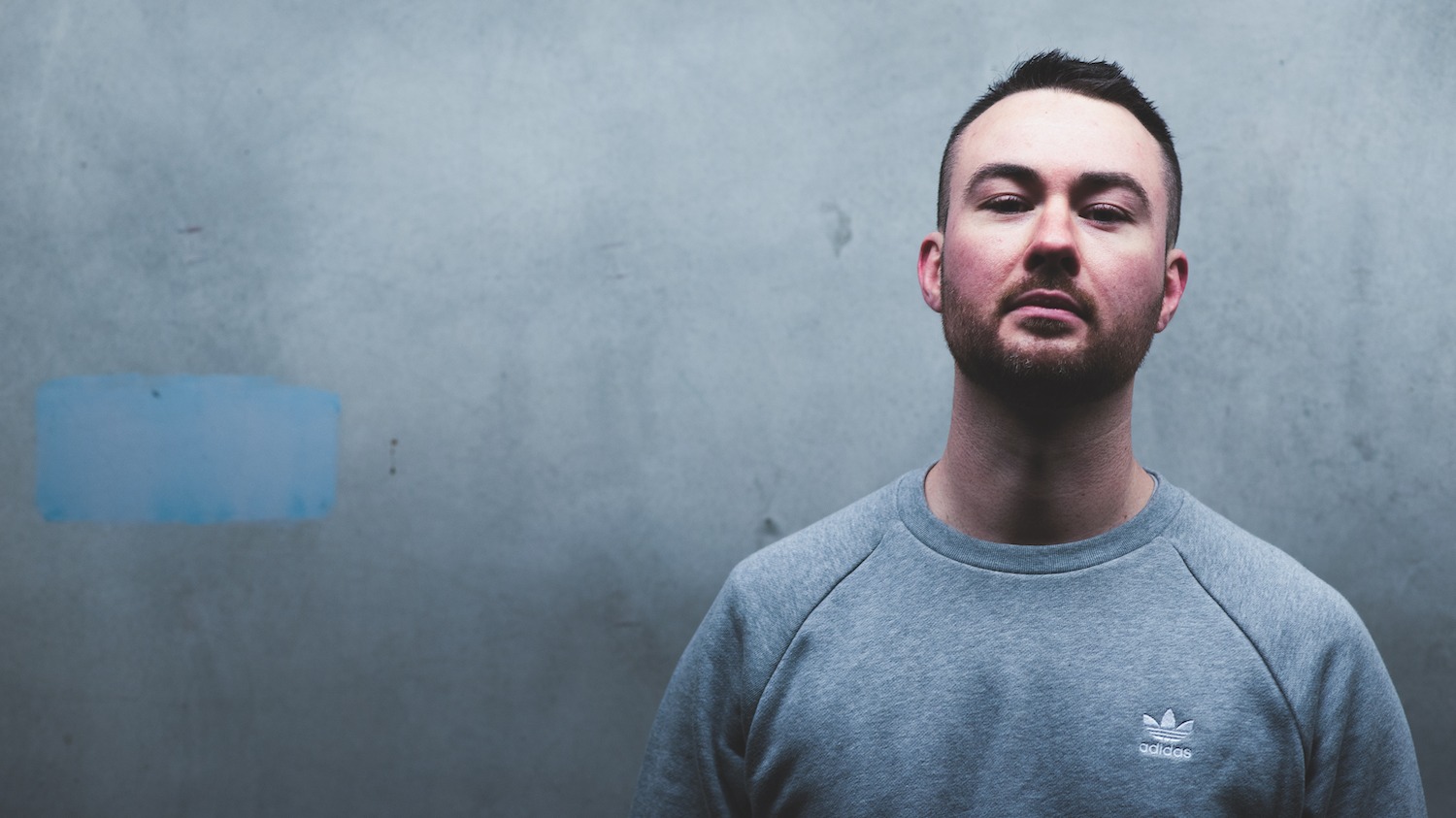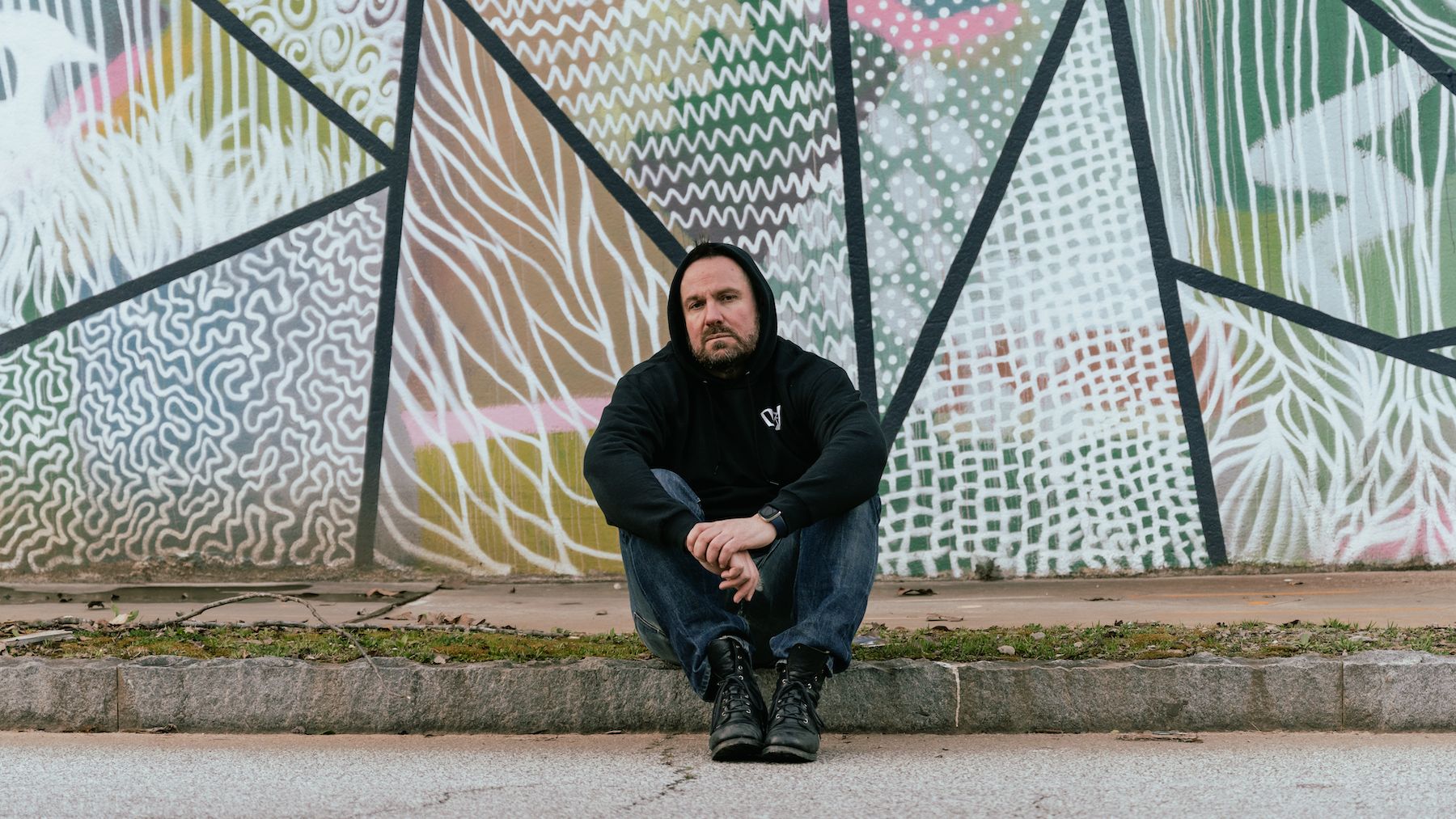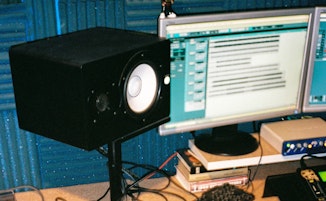
■ Features
We spoke to various artists to find out what it takes to become a successful DJ/producer, whether DJing enhances production and vice versa.
DJ/producers are one of the most popular types of DJs, and with good reason.
Within electronic music, DJing and producing are intrinsically linked. Producers are often making music with one eye on what’s being played out by DJs in the clubs. Similarly, a good DJ is constantly digging for new music, keeping their eye on what their favourite labels are pushing out and constantly evolving their style in line with current trends and technological advances.
It’s not hard to see why someone who starts out as a DJ might make a great producer or vice versa. It’s more difficult to see how individuals who do both, balance these fundamentally different skills.
With that in mind, I caught up with a couple of DJ/producers to find out how they became hybrid artists and whether they feel these two art forms are mutually beneficial.
 DJ/Producer ENiGMA Dubz
DJ/Producer ENiGMA Dubz
DJ/producers generally start out as either DJs or producers, then they become interested in learning the other skill after some time.
ENiGMA Dubz has been pushing the boundaries of bass music since he burst onto the scene more than a decade ago. He describes himself as “more of a producer” but explains DJing helped him get into producing “properly”:
“Before learning how to mix, I was composing music on a keyboard and recording layers/creating basic tracks. DJing opened my mind to the process of producing using software and ultimately opened the doors to all the engineering and co-writing I do behind the scenes.”
So despite starting out composing, without getting into DJing, ENiGMA Dubz may have ended up still writing music on a keyboard, he might never have changed his method of making music without being driven in a new musical direction towards dance music - something which has clearly paid off in his case.
Indeed, this is a common route for many. Perhaps your parents forced you to take boring flute or trombone lessons when you were young and expressed a musical interest. And after years of hating it and wanting to give up, exposure to DJ and nightlife culture opened up an entirely new avenue of making music.
Vinyl Matt boss Dalston Lane, on the other hand, describes himself as “more of a DJ”. He was DJing exclusively for 7 years before starting to make his own beats. In his approach, he describes prioritising DJing professionally and treating producing as more of a passion project:
“I’ve produced music for 31 years. Having had mild success throughout all these years of producing, the DJ work is my living, whilst producing is a passion.”
DJing is often a good way of earning a bit of cash whereas releasing music can take years to produce any financial reward. Asked whether all producers should DJ, Beatport-charting Miami artist Doc Brown suggests that they sort-of do but that this is a problem with the wider industry:
“If you are looking to make a living at production, and you have a profile big enough that you don't need to DJ for income - you really don't have to. Achieving that level of success through production alone is pretty rare though, especially in dance music.
Unfortunately the value of recorded music has decreased dramatically, so I think it's probably more difficult to make a living off production alone than it is off of DJing alone, but it certainly can be done!
Personally, I'd like to see a levelling of the field where producers that make great music but can't--or don't want to--DJ or tour can make a more sustainable living in the studio.”
But whether you start out as a DJ or producer doesn’t necessarily matter, becoming a great DJ/producer means learning and honing both skills. Whether you end up as ‘more of a DJ’ or ‘more of a producer’ probably isn’t entirely up to you either. Through your musical career you’ll likely find greater success in one field or the other and it might not necessarily be the thing you’re more passionate about.
The great thing is that if you’re an aspiring major DJ but your first success comes in the form of your EP popping off, you can leverage that success to get booked for DJ gigs and vice versa. A successful DJ/producer manages to make their production and DJing efforts mutually beneficial - both in the personal creative process and when it comes to promoting themselves as an artist.
Dance music is a small and tight-night world, people pay attention to things they love the sound of, so developing yourself in any area is likely to help you in all.
Looking at how DJing specifically aids production, the easiest application is the production of club music. ENiGMA Dubz makes club music for which he says experience in the booth, behind the decks is “vital”:
“DJing has allowed me to really see and feel the impact of my music on sound systems and in front of a crowd. When I’m writing system/club tracks, the DJing experience is so vital to how I approach the creative process. It also gives me the opportunity to test dubs out and then go back and tweak them if they don’t hit quite right.”
Dance music is often described as functional, designed to make people dance. For this reason, it's easier to decipher whether or not a club track is successful - does it blend well into a set and keep the crowd moving? If not, it probably needs a bit more work.
A great example of the cross-section between DJing and producing when it comes to club music is the term ‘DJ tool’. A 'DJ tool' is a track that is created by a producer with ease of mixing in mind. Tech House DJ and producer Viv Castle gets at this when he explains that DJing gives producers a technical insight into the requirements of a club tune in a club setting:
“When you are DJing, you need to understand how a crowd reacts to specific changes in tempo, the length of a breakdown, or certain vocals. That gives you an in-depth understanding of the audience.
On top of that, you also know how DJs mix and what makes a track “DJ friendly.” You know what makes a good outro and intro.
As a producer, the last thing you want to do is make a track that is hard to mix; otherwise, DJs won’t play your stuff. No one wants to sound bad when DJing. Both of these certainly come into my thought process when making tunes.”
Of course, if you’re a producer who doesn’t want to DJ, you can still send your tracks to DJs and ask them to test them for you on club sound systems. While DJing might give you a “better understanding of what works the floor” (Dalston Lane) when it comes to making club tracks, it’s by no means a prerequisite.
The market for DJs is extremely saturated, with more and more artists coming up and breaking through each year. For this reason, Dalston Lane describes production as an essential way to validate yourself as an artist:
“If you DJ within the electronic field of music and looking to make a name for yourself, I think it [producing] is a must.”
This being said, ENiGMA Dubz points out that there are still DJs killing it on stages all over the world who aren’t making any of their own music:
“There’s an art to being a good DJ/selecta. Those who are out there purely DJing without producing too are surviving with their knowledge of music and the art of working a system/crowd.”
One way that producing original music can enhance your DJ set is that you can play unreleased music. ENiGMA Dubz plays his own music in his sets, but also makes edits to make his DJ mixes sound fresh and unique:
“It gives me the advantage of having a constant supply of new music to play out in my sets. It’s such a buzz to turn up to a set, knowing the amount of exclusive material I have to hit a crowd with. Also, making cheeky VIP edits of tracks for certain sets is dope too, really adds a lot to live performances.”
Doc Brown agrees that producing can give your DJ sets a real edge:
“I think production makes your set more unique. Track selection is always key, but being able to have tracks or layers that no-one else has allows you to create a vibe that is specific to you and that can't be replicated.”
Of course, if you don’t make music, you can still get unreleased and fresh material for your sets from those that do. Do a call out on social media and let producers know that your inbox is open. In fact, you should do this even if you do make music - no one is going to play a DJ set of entirely their own productions.
As an independent artist, you need to have a good idea of not only how to promote your music, gigs and mixes but also how to promote yourself as a DJ/producer.
Once again, as a DJ/producer, your two key skills will feed each other here. ENiGMA Dubz points out that success as a producer often comes with requests to DJ:
“As an artist becomes more popular, there’s no doubt they’ll eventually get requests to play shows and their own material. Being able to not only play your music out, but to create a set that flows well and grabs an audience is another string to your bow.”
As ENiGMA Dubz explains above, when you release a record, you can tour that EP by DJing (if you DJ). You’ll also try to get that music into the hands of as many DJs as possible so they can play your release in clubs and on radio. If you DJ, it’s likely that you’ll know more DJs - that helps too.
The idea of having to produce because you're a club DJ and vice versa is contentious and (I think) misplaced.
Some DJs think they need to produce music, in order to be taken more seriously as a DJ, as very few ‘make it’ or get booked without producing their own music - a sign to the industry that you mean business and that ‘this is what I sound like’.
Others bemoan this attitude, claiming that often, artists are much better at one than the other: a ‘DJ’s DJ’ who can’t produce, or a producer who regularly churns out incredible music but rarely gets booked.
 DJ/Producer Viv Castle
DJ/Producer Viv Castle
Ultimately whether you choose to DJ or produce or do both is entirely up to you. No harm will come from trying another form of artistic expression - just don’t feel like you have to.
If you’re a DJ and you want to get started with music production, you can check out our Music Production Guide - aimed at total beginners. We’ve also got lots of support materials if you’re a producer and you want to get started with DJing - from how to beatmatch on CDJs to how to mix using EQ.
Lastly, if you’re ready to hone your skills as a producer/DJ, you can book a DJ studio or recording studio with Pirate in cities across the UK, US and Germany.
